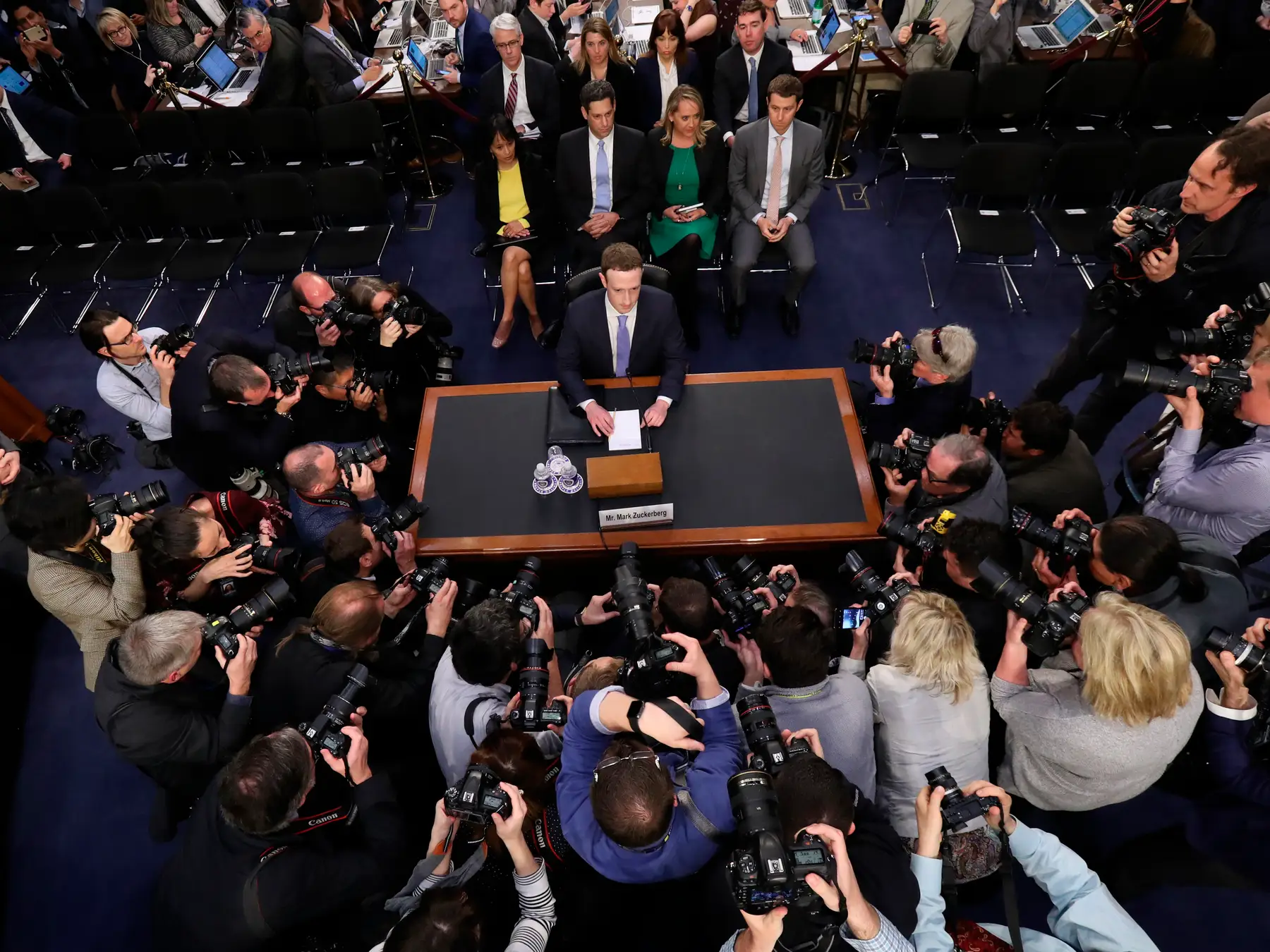本期经济学人杂志【经济金融板块】这篇题为《Is Libra doomed?》的文章讲了 Facebook 提议的全球加密货币 Libra 推出后在这几个月中的惨淡遭遇。脸书之前就因为隐私问题被 diss,这次推出的全球加密货币本身就敏感,要想推进下去自然难上加难。
扎克伯格领导的脸书在今年 6 月 18 日宣布计划在 2020 年推出 Libra 全球加密货币系统。Libra 能让富裕国家的人们的支付更加便捷,给贫穷国家带来金融变革。脸书称全球尚有 17 亿人没有办法获得银行账户,如果 Libra 成功推出,那它将伴随脸书在全球的扩张而进入人们的生活。
但在 Libra 计划宣布后几个月内,它一直被政客们和监管机构的不赞成声笼罩。最初参与 Libra 的 28 个机构有 1/4 已经抛弃它离开了。法、德、意等国已经宣称它们可能禁止 Libra,印度的部长们(印度有五亿互联网用户)对这个加密货币好像不怎么热情。
10 月 23 日,扎克伯格在华盛顿独自一人面对议员们几个小时的轮番质疑。脸书之前本来就因为侵犯用户隐私坏名声,不但在 7 月份被美国联邦贸易委员会罚了 50 亿美元,还在美国 47 个州遭到反垄断调查。况且此次想成立的 Libra 全球加密货币涉及重要而敏感的金融领域,安全性、隐私性等方面如何得到保证还不清楚。
面对外界的质疑,小扎主要是从创新的价值和 Libra 有传播民主自由的潜力的角度来辩护。在 10 月 23 日的听证会上他和议员们还提到了 Alipay 和 WeChat Pay,然后国内有媒体就摘个片段放出来说扎克伯格夸国内支付厉害,上了微博热搜 ![]()
The Zuck Buck ruck: Is Libra doomed?
The Zuck Buck ruck
Is Libra doomed?
Facebook’s planned digital currency has had a miserable few months
Print edition | Finance and economics
Oct 24th 2019
On june 18th Facebook announced Libra, a new global payments system and currency, to be launched in 2020. Dubbed the “Zuck Buck” by Brad Sherman, an American congressman, the plan was to employ a mix of entrepreneurial daring and the technology underlying cryptocurrencies to shake up the world’s financial systems. Money would move at the speed of a smartphone-swipe, even across borders. Libra would lubricate life in the rich world and revolutionise it in poor countries, where basic financial services are dear and often scarce. After all, as the firm points out, 1.7bn people have no access to a bank account. Besides further expanding Facebook’s empire, Libra would bring them into the financial fold.
In the subsequent four months, Libra has had a bruising time. Many of its partner firms have got cold feet. Politicians and regulators around the world have made disapproving noises. On October 23rd Mark Zuckerberg, Facebook’s boss, spent a lonely few hours in Washington, dc, fielding mostly hostile questions from American politicians on the House of Representatives Financial Services Committee.
One problem, as Mr Zuckerberg admitted, is Facebook itself. Maxine Waters, the Californian Democrat who chairs the committee, began proceedings with a litany of its misdeeds, pointing out that it is subject to antitrust investigations in 47 states (see article), that Russia has used it to meddle in American elections, and that it has been fined $5bn for deceiving consumers. Nydia Velázquez, a Democrat from New York, accused Mr Zuckerberg of lying to European regulators over the firm’s merging of user data from WhatsApp, a messaging service bought by Facebook in 2014, with those from the rest of the company. Why, the congresswoman wondered, should a firm like that be trusted with something as important as a currency?
Mr Zuckerberg pointed out that Libra would be administered not by Facebook, but by the Libra Association, an independent body that includes other companies and is based in Switzerland. But the association is already not what it was. Of the 28 original members, a quarter have left. PayPal, an online-payments firm, departed on October 4th. A week later eBay, Mastercard, Mercado Pago, Stripe and Visa—another group of payment firms—jumped ship, as did Booking Holdings, a travel company. PayU, a Dutch firm, is the only payments firm still in the association. Other remainers include two ride-hailing firms (Uber and Lyft), a pair of telecoms companies (Iliad and Vodafone), a gaggle of venture capitalists and a handful of charities. The association’s head of product, Simon Morris, left in August.
Other questions concerned users’ privacy and Libra’s potential attractiveness to money-launderers. Mr Zuckerberg promised that Libra would not launch until it had permission from America’s alphabet soup of financial regulators. But for a currency with global ambitions, placating the Americans will not suffice. France, Germany and Italy have already said they may block Libra; ministers in India, which has more than half a billion internet users, have been unenthusiastic too. Facebook has said that, unlike most cryptocurrencies, Libra will be backed by a basket of assets, including currencies and government bonds. A report by the g7, a rich-country club, nevertheless said that Libra, if widely adopted, could pose a risk to the global financial system and should not go ahead until it could be proved safe. That Libra has been described as a cryptocurrency (exactly how it would work remains unclear) will not have helped: regulators are well aware of cryptocurrencies’ reputation for scams and shady dealing.
Still, positive thinking is the order of the day, at least in public. Mr Zuckerberg talked at length about the value of innovation, and Libra’s potential to spread freedom and democracy around the world. After the defections from the Libra Association earlier in the month David Marcus, the Facebook employee leading the initiative, tweeted that “in a way, it’s liberating”. Perhaps. But Facebook may hope there is not too much more liberation to come. ■
This article appeared in the Finance and economics section of the print edition under the headline"The Zuck Buck ruck"
Print edition | Finance and economics
Oct 24th 2019
